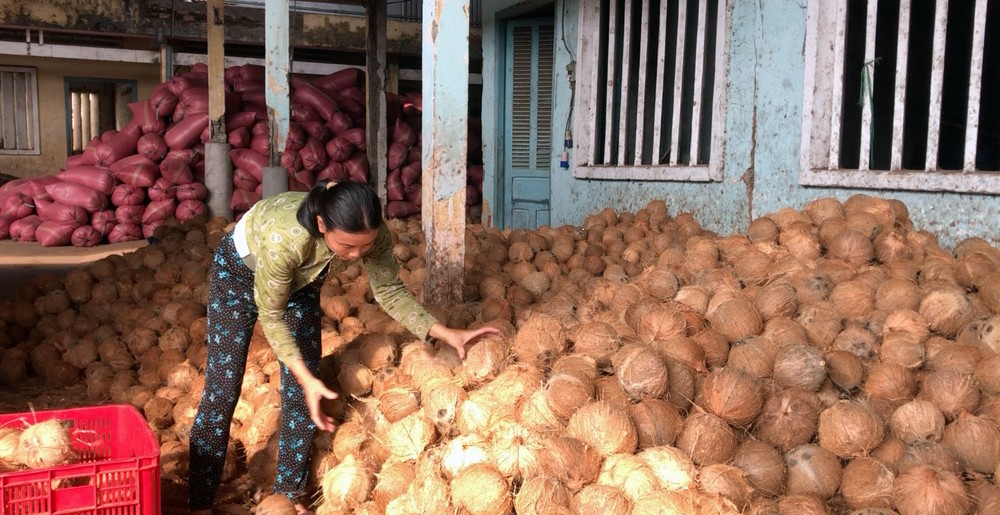The steep decline has left many coconut farmers struggling, especially as fertilizer, labor, and transportation costs continue to rise.

According to Mr. Tran Van Dat, Director of Dinh Thuy Agricultural Cooperative in Dong Khoi Commune, Vinh Long Province, the price of dried coconuts has dropped drastically from around VND200,000 per dozen last month to about VND80,000 at present.
“The price has fallen too fast, even though it’s the rainy season and output is relatively low, but demand remains sluggish,” Mr. Tran Van Dat said. “At this level, farmers are merely breaking even and cannot cover the costs of maintaining their coconut gardens.”
Traders attributed the decline to weak domestic consumption and reduced purchases by processing enterprises due to export difficulties. Several factories reported that export orders to China, India, and the Middle East have been disrupted by higher transportation costs, hampering the export of dried coconuts and related products. In addition, previously high domestic prices prompted some companies to temporarily import dried coconuts from Indonesia and Thailand, creating an oversupply in the domestic market.
According to Mr. Van Huu Hue, Deputy Director of the Vinh Long Department of Agriculture and Environment, the province currently has nearly 120,000 hectares of coconut plantations with around 22 million trees, accounting for more than 50 percent of the country’s total area. However, small-scale, fragmented production and dependence on traders have made market access unstable and prices highly volatile. The lack of close linkages between farmers and processing enterprises has also prevented the coconut value chain from reaching its full potential.
Mr. Van Huu Hue emphasized that the province’s priority moving forward is to develop organic coconut farming zones meeting international standards to ensure long-term sustainability for the local industry. Vinh Long is also building a soil and crop database and zoning maps to manage production scientifically while promoting new-style cooperatives that connect farmers with enterprises, ensuring stable markets and traceability for export.
Currently, Vinh Long has over 30,000 hectares of organic coconuts certified to international standards and 156 planting area codes approved for export to China, the United States, the EU, and Japan.
























